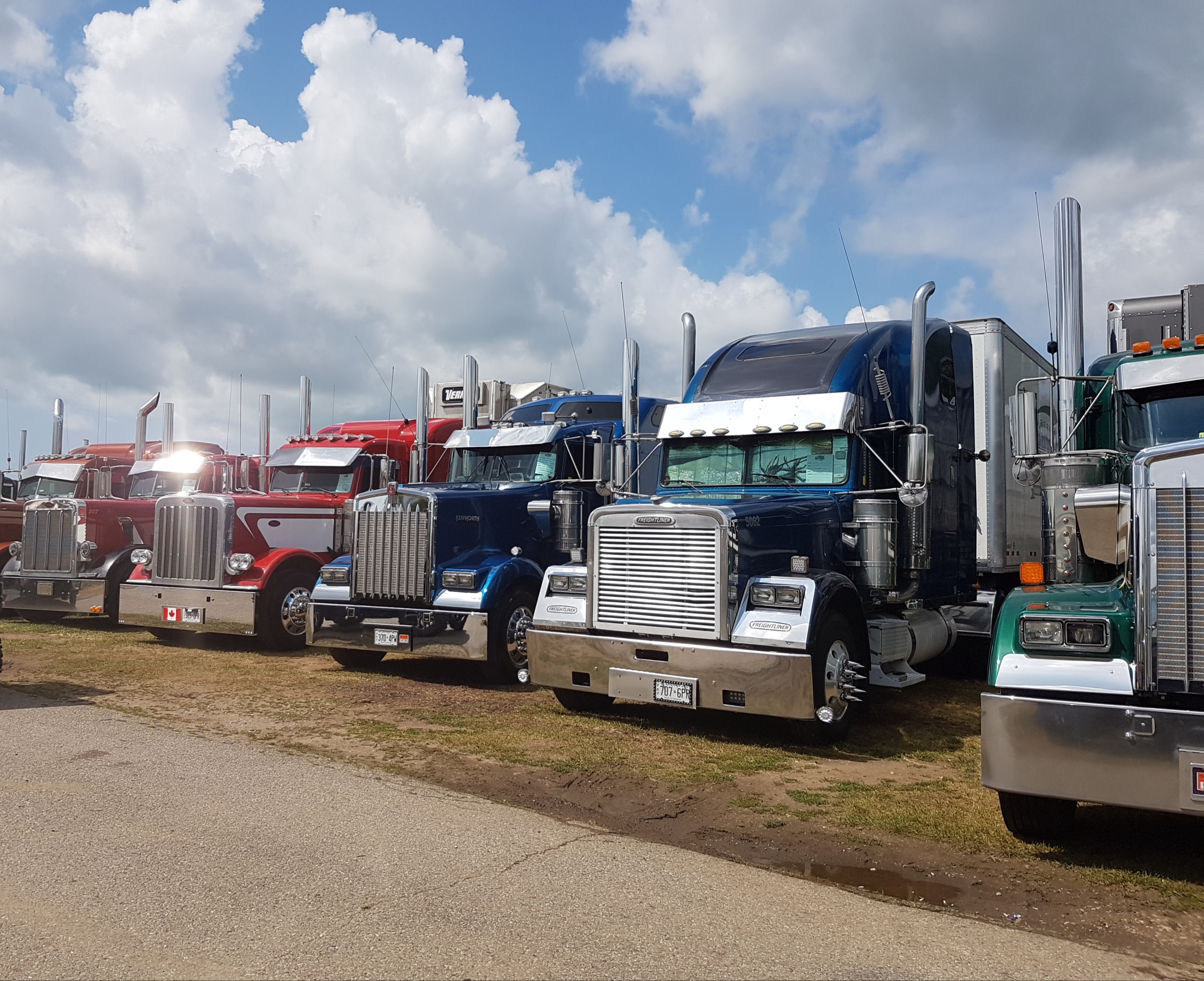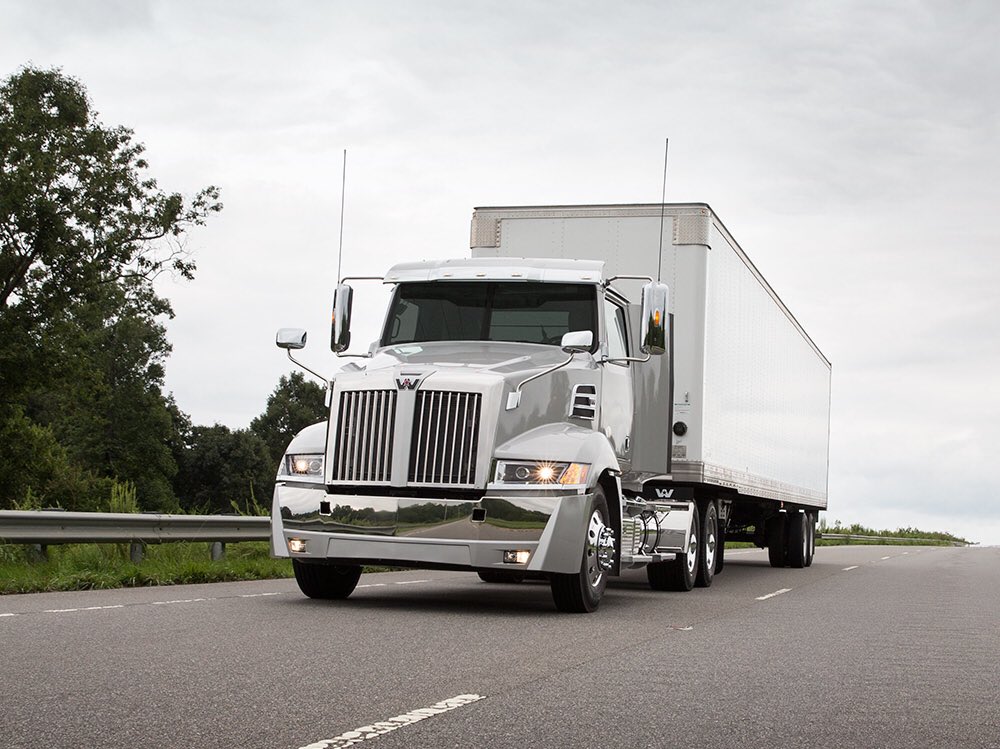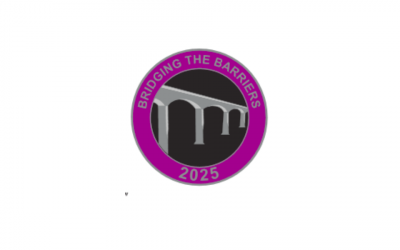
What I will discuss in this article are three things I pay close attention to when reviewing the application of a new driver: convictions, CVSA performance, and PSP report information. While these are not the only items I consider when hiring, they are all related to each other and make for good topics for those hiring drivers and for drivers to see what carriers may be looking at when hiring.
Convictions
Convictions are traffic offences where a driver has been found guilty. These are different from charges. For example, if you are pulled over for speeding by a police officer and the officer writes you a ticket, the officer has charged you by writing the ticket. However, you are not convicted of that charge until you plead guilty.
Paying the fine means you have accepted and pleaded guilty to the charge, and at this point the charge becomes a conviction and appears on your abstract. If you choose to dispute the charge in court and it is dropped then you are not convicted of the charge.
A driver’s abstract shows convictions, not charges. Since a charge is a peace officer alleging that a driver has broken the law and the driver has the right to a fair trial, their abstract can’t show the incident until guilt has been proven. So if, when reviewing a driver’s abstract, you see convictions for a traffic violation, that means that the fine has been paid and the charge accepted.
While on its surface this implies that the driver has accepted guilt, we should not be so quick to judge. Many people do not understand the court system and their rights, and paying a ticket often seems simpler and easier than going through the process of disputing it – even if they believe they aren’t guilty.
There is always more to a story than what is written in the few lines dedicated to describing the event, so if you’re reviewing the abstract of a potential new hire and you see a traffic conviction, I believe it is best to dig a bit deeper and review the incident with the driver to get a fuller picture.
I am not saying that you should brush off convictions nor violate your policy or insurance company’s requirements for maximum numbers of demerits or convictions of a certain type. What I am saying is that a driver’s abstract is a starting point for a conversation with the individual about their safety and professionalism, and such a conversation is a good way to learn about the people you are considering hiring.
CVSA Performance
Besides convictions, a commercial driver’s abstract may also contain additional information about safety performance. In Alberta, for example, there is a section in a commercial abstract for roadside inspection information. This is provided by the CVSA (Commercial Vehicle Safety Alliance), an inter-jurisdictional organisation that sets standards for commercial vehicle enforcement officers in North America.
If a commercial driver has been subject to a roadside inspection by a commercial vehicle enforcement officer, this information can be reviewed on their commercial abstract. For each inspection event there will be information about what type of inspection was done (for example, it may say “Level 1 – Full” meaning a full inspection of the vehicle and driver documents was done).
After listing the type of inspection, results will be shown. If something like “No Violations” or “Passed” is recorded then the roadside inspection officer found nothing wrong. This is good: it means the driver has a demonstrated history of safety and compliance. So if you review an experienced driver’s abstract and there are multiple pages of clean inspections, this is a good indicator that this driver is a professional operator.
What if there are no CVSA inspections? Instead of brushing the driver off as inexperienced, you should look at their previous places of operation. For example, a truck driver who operates in the oil patch may go years without passing over a government scale or being selected for a CVSA roadside inspection, so a lack of inspection information does not equal an unsafe or inexperienced driver. Long-distance highway drivers typically have more interaction with CVSA officers as scales are most often located along highways, and so the abstracts of these drivers will usually show more inspection information than local or off-road drivers.
What about inspections that show violations? Like the conviction section above, dig deeper and look for patterns. Did all the failed inspections occur while the driver was employed with a certain carrier? Perhaps the driver was new and unaware of many regulations and a previous carrier did a poor job of getting appropriate permits or maintaining equipment. The driver is responsible for safe and legal compliance, but drivers at companies which provide adequate training and support have an advantage over drivers at companies with a poor attitude to safety.
Hiring a new driver means judging another human being; a decision should only be made after a thorough review of available information while adhering to internal safety policies, industry best practices, and – of course – legal requirements.
PSP Report Information
In the USA, the Federal Motor Carrier Safety Administration (FMCSA) has an optional program called the Pre-Employment Screening Program (PSP). The PSP provides 5 years of crash and 3 years of CVSA inspection information for all commercial drivers with a history of driving in the USA, and a carrier can request a PSP report for $10 USD for a prospective hire after obtaining written consent from the driver (see the FMCSA’s PSP website for more information about the program and record-keeping requirements).
A PSP report offers more insight into a driver’s history. Data transfer between Canada and the USA isn’t perfect, so a conviction or inspection in one country will not necessarily be detected in another. If you’re hiring a driver with a history of US commercial driving, pulling their PSP report can reveal additional information about their safety and professionalism. Even if you are hiring them for a Canadian-only position, it is always good to have more information about a possible future driver. Additionally, if they claim to never have driven commercially in the US, a PSP report can support that claim or, if it shows US driving information, show dishonesty.
Like I have mentioned in the sections on convictions and CVSA performance, use information in the PSP report to paint a better picture of your prospective hire. During your assessment, keep judgements in check before hearing what the driver has to say. Their explanation of events can speak to their levels of humility, acceptance of fault, and professionalism.
In conclusion, I hope that this article has been either illuminating or a good refresher for those hiring drivers, as well as being useful to drivers to see what sorts of information are considered by a carrier making a hiring decision. If I have given the impression that I am overly-dismissive of recorded safety violations or skeptical of government-provided commercial driver safety records, that was not at all my intention. These sources of information are extremely valuable and robust, and no violation is worth overlooking. But, it is a person being evaluated, and we owe our fellow citizens the respect and dignity of a full review and consideration and at a certain point in the hiring process, an opportunity to speak for themselves.

Dave Elniski is a Transportation Safety Professional you can reach him via email at dave.elniski@gmail.com or connect with him on LinkedIn





0 Comments